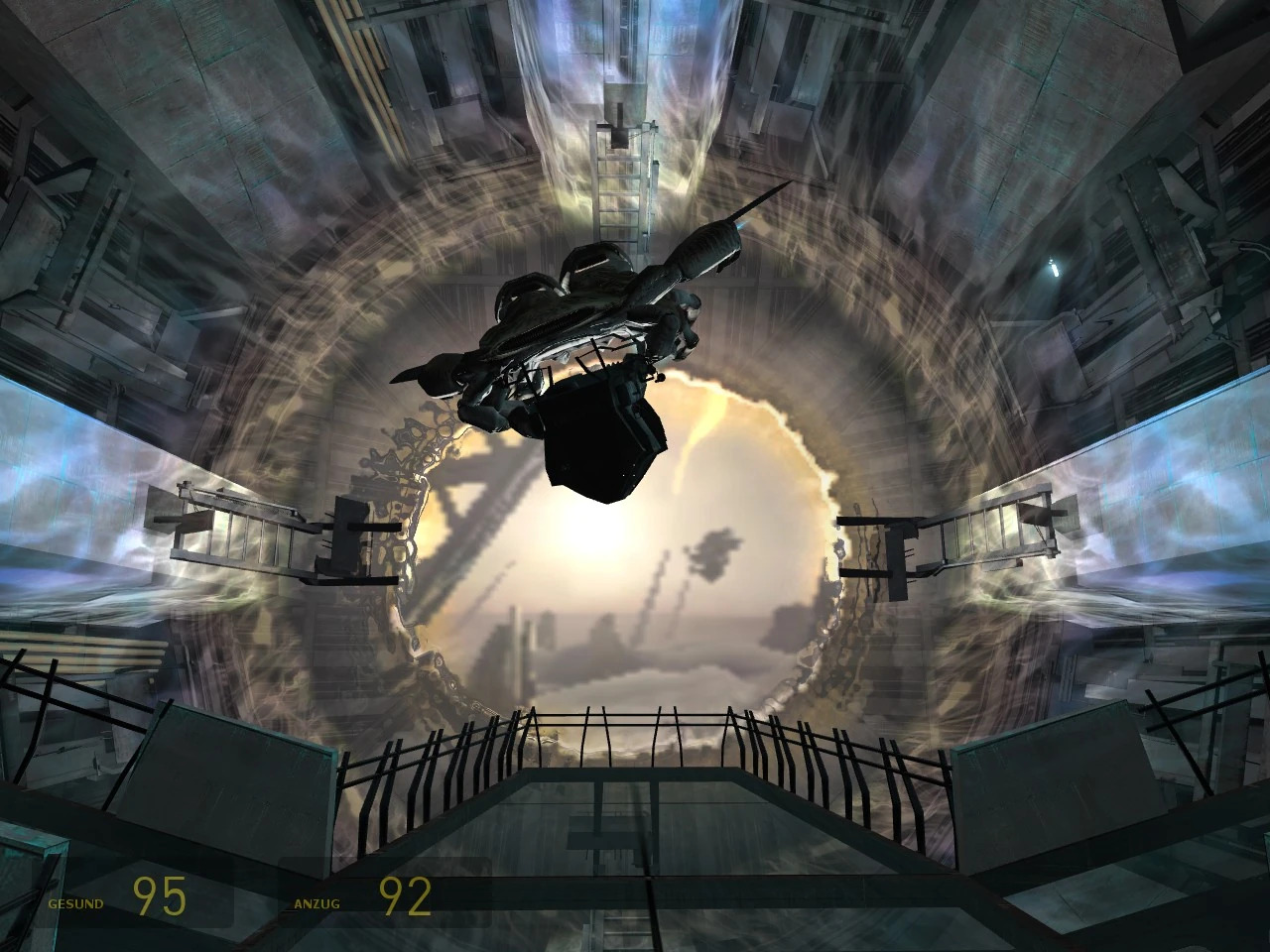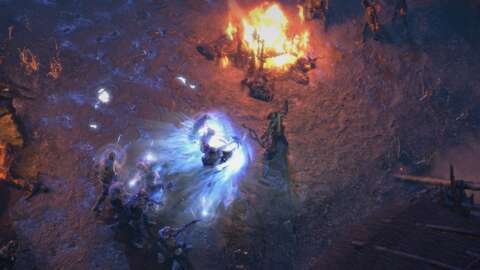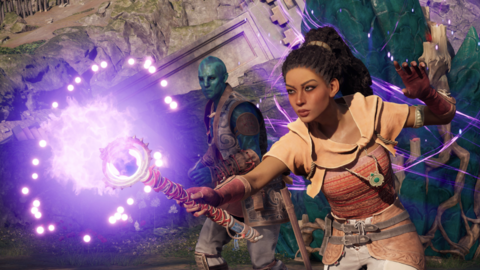
Half-Life 2 celebrated its 20th anniversary last week, with Valve releasing a hefty update to the original game alongside a two-hour documentary featuring interviews and a peek at never-before-seen footage and concept art from the game’s development.
As a longtime fan of the series who considers Half-Life 2 one of my most formative experiences playing games, the anniversary has me feeling some type of way: a bittersweet nostalgia for a bygone era of PC gaming and the community of aspiring artists, designers, and modders that sprang up around it. Half-Life 2 was the first game I played that inspired me to know more not just about the people who created it, but about how games are even made in the first place. With that said, I must admit my love for the game has waned somewhat in the decades since its release.
For as much as I initially fell in love with the game for its sense of mystery and intrigue, there’s just no more mystery in it left for me. I’ve turned over every rock, scoured every surface, and hungrily completed every possible achievement in Half-Life 2 and its episodic follow-ups — some before Steam achievements even existed! Which is why the user-created mod series Minerva: Metastasis remains not only my favorite take on the Half-Life universe, but one of my favorite games full stop. More than 17 years since I first played it, I’m still utterly enthralled by its sense of eerie mystery and alien menace. And with the recent anniversary update to Half-Life 2, which includes both Half-Life 2: Episode One and Two, now is as perfect a time as any to play it.

Released between 2005 and 2007 as an episodic series of mods to Half-Life 2 and Half-Life 2: Episode One, Minerva: Metastasis was developed by Adam Foster, a web developer and hobbyist designer who gained notoriety among the Half-Life modding scene for “Someplace Else,” a short single-player campaign released in 2002 and set entirely in Xen — the hostile alien dimension that serves as the setting for Half-Life’s finale.
After collaborating on several other modding projects that fell apart due to an overabundance of ambition, Foster decided on a different approach for his next project, one that made the most of preexisting assets to create an original single-player story released in episodic installments. “The aim isn’t to replace as much game content as possible,” Foster said in an interview with CVG in 2006. “Instead, it’s to tell my own, apocryphal story set in the Half-Life 2 universe, and to actually release something for the public to play.”
Minerva opens with your character, an unnamed protagonist clad in an HEV suit, unceremoniously dropped on the shore of a mysterious island bunker in the Baltic Sea fortified by the Combine, the multidimensional antagonists of Half-Life 2. The game doesn’t waste any time explaining what’s happening; you’re pelted by Combine gunfire from the moment you set foot on the beach. Before you can even get your bearings, you hear the chirp of a dial-up modem as a timestamped message scrolls across the top-left corner of your screen, commanding you to run up the side of the beach and take cover.

Circling around the opposite end of the beach, you receive another message from your mysterious, would-be benefactor. “I am your Athena, you are my bastard Perseus, and our Medusa for today is this island.” If you couldn’t already tell, the message’s sender, known alternatively as “Minerva,” is a foul-mouthed megalomaniac with a penchant for mythological metaphors. Not much else is known about them initially, aside from the obvious fact that they’re the closest thing you have to a friend on an island overrun with posthuman stormtroopers ready, willing, and eager to ventilate you on sight. With no other choice, you charge ahead at the behest of this strange ally with opaque intentions to unearth the secrets of this compound, why the Combine are here, and how the answer to both those questions might connect to the broader Half-Life universe.
Minerva: Metastasis isn’t like a lot of other mods of its era, in that it, well, actually prioritizes its writing. Inspired by Bungie’s sci-fi shooter Marathon, as well as the “Cortana Letters” ARG created to promote Halo: Combat Evolved, the bulk of Minerva’s story is conveyed entirely through text messages sent by the player’s unseen companion. The tone and style of Minerva’s writing is heavily indebted to the work of the late Scottish sci-fi author Iain M. Banks, who Foster has praised for a style of writing that hides huge amounts of information in slightly ambiguous sentences that require keen-eyed readings to fully parse the true weight of their meaning.

The character of Minerva, whose nature and motivations are gradually revealed over the course of the game, is where Foster’s strengths as a storyteller really shine. Initially an aloof, taciturn taskmaster who delights in constantly thrusting you into mortal peril as readily as she chides you for not heeding her precise instructions, Minerva gradually drops her guard as the plot unfolds, revealing her to be as much a victim of circumstances beyond her control as the protagonist themself. Before you ask, no: She is not an artificial intelligence, nor is she quite what you would conventionally describe as “human.” She’s… well, something else. A “secret third thing,” if you will. Minerva is a prime example of Foster’s layered approach to writing that gestures toward answers without outright stating them. For me, an essential quality of any enduring creative work is a degree of interpretative ambiguity, and the story of Minerva: Metastasis more than qualifies in that respect.
Minerva’s level design is yet another reason why it stands head and shoulders above other mods of its time— and even arguably Half-Life 2 itself. Where Half-Life 2’s levels were designed to be gameplay-friendly environments first and architecturally plausible locations second, if at all, Foster’s approach to designing Minerva’s levels was almost the exact opposite: creating believable environments with correctly proportioned structures and areas first before implementing gameplay later.

Instead of relying on horizontally sprawling, immense maps that stress the Source engine’s area capabilities to its max, Minerva’s environments are small but incredibly dense, guiding the player through multiple pathways that incentivize them to circle back and explore previously unexplored routes, making the maximum use of each level’s potential before proceeding downward into the labyrinthine depths of the island’s interior. Combined with carefully choreographed enemy placements and intuitive environmental puzzles, Minerva delivers a moment-to-moment experience that’s as propulsively challenging as it is narratively engaging.
As if that weren’t enough, Foster went so far as to create tons of assorted ephemera outside the game that offer more depth to his “apocryphal” take on Half-Life. The mod’s website contains additional messages written by Minerva herself, as well as other documents and emails, that not only offer more details about the character, but enmesh her significance more deeply into the events prior to Half-Life and Half-Life 2.

While not necessary to grasp the plot of the game, I nonetheless highly recommend reading through the site if you, like me, appreciate deftly written world-building through epistolary fiction. “Technology and violence are a girl’s best friends; power is eternal delight” is a line that’s lived rent-free in the back of my mind for almost two decades now.
Foster had initially planned on two other chapters of the story, with the second installment, Minerva: Out of Time, set in a snow-capped coastal town with a semi-open-world design inspired by 2007’s STALKER: Shadow of Chernobyl. However, those plans promptly went out the window when Foster announced he’d been hired by Valve shortly after Minerva: Metastasis’ release, initially to work on the company’s then in-development Half-Life 2: Episode Three before moving on to work on Left 4 Dead and Portal 2 following that game’s indefinite postponement.
There’s still a part of me, to this day, that would happily take either a new, Valve-sanctioned Minerva or Minvera-inspired game over Half-Life 3 at this point. Given the frankly infinitesimal likelihood of either scenario bearing out, I’m just happy to be able to replay the game after all these years and be left to imagine what other strange and perilous adventures Perseus and Minerva get up to after the credits roll. In the absence of answers, one must learn to be content enough to love the questions themselves.
MINERVA: Metastasis is available to play for free on Steam.
Source:https://www.polygon.com/what-to-play/482810/minerva-metastasis-half-life-2-mod














